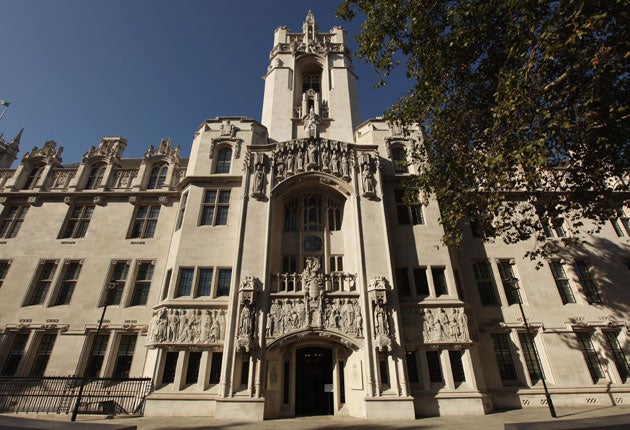New law pledge after terror assets freeze overturned

The Government promised new "fast-track legislation" after the Supreme Court today overturned a Treasury assets freeze on suspected terrorists.
A panel of seven justices allowed a challenge by five men who had all their assets frozen under orders made when Gordon Brown was Chancellor of the Exchequer.
The 2006 orders were in response to UN Security Council resolutions calling for steps to be taken to hit the financing of international terrorism.
But the orders were not voted on in Parliament. Today the Supreme Court ruled the Treasury had exceeded its powers and the orders were unlawful.
The justices declared that if the Government considered "far-reaching measures" were necessary to combat terrorism, "it must first obtain approval for them from Parliament".
Later a Treasury spokesman said: "The Government is committed to maintaining an effective, proportionate and fair terrorist asset-freezing regime that meets our UN obligations, protects national security by disrupting flows of terrorist finance, and safeguards human rights.
"It's important to be clear that this ruling does not challenge the UK's obligations under the UN Charter to freeze the assets of suspected terrorists, which we will continue to meet.
"We will introduce fast-track legislation to ensure there is no disruption to our terrorist asset freezing powers."
High Court judge Mr Justice Collins initially outlawed the Treasury's powers as "unfair" and a breach of fundamental rights, but was later overruled by the Court of Appeal.
Today the Supreme Court, the highest court in the land, agreed with Mr Justice Collins and said the orders must be quashed.
The panel of justices included Lord Phillips, Lord Hope, Lord Rodger, Lord Walker, Lady Hale, Lord Brown and Lord Mance.
The justices said the orders placed very severe limitations on the ability of persons who had been designated terror suspects to deal with their property.
They had an extremely grave effect on an individual's freedom of movement, liberty and private life - and also the liberty of their families and associates.
Lord Hope said: "Even in the face of the threat of international terrorism, the safety of the people is not the supreme law.
"We must be just as careful to guard against unrestrained encroachments on personal liberty."
Conferring an unlimited discretion on the Government as to how the UN resolutions should be implemented was "wholly unacceptable" and "conflicts with the basic rules that lie at the heart of our democracy".
Lord Phillips, president of the court, said: "Nobody should conclude that the result of these appeals constitutes judicial interference with the will of Parliament.
"On the contrary, it upholds the supremacy of Parliament in deciding whether or not measures should be imposed that affect the fundamental rights of those in this country."
The judges allowed an application by the media for the right to name the five applicants, who have previously been the subjects of anonymity orders.
They are Mohammed al-Ghabra, Hani el Sayed Sabbaei Youssef, Michael Marteen - formerly known as Mohammed Tunveer Ahmed, Mohammed Jabar Ahmed and Mohammed Azmir Khan.
More than 50 people living in Britain are believed to be on the Treasury sanctions list.
They all have to apply to the Treasury for permission to spend money, even on groceries, and anyone who provides them with "an economic resource" is liable to criminal proceedings and a jail sentence.
After today's ruling, James Welch, legal director for human rights campaigners Liberty, said: "Attacking terrorist finance is incredibly important to public safety but any asset-freezing regime should allow fair hearings and proper appeals.
"It is also important that in freezing suspect's assets, the authorities don't leave them destitute or put family members at risk of prosecution for providing basic food and shelter."
Subscribe to Independent Premium to bookmark this article
Want to bookmark your favourite articles and stories to read or reference later? Start your Independent Premium subscription today.

Join our commenting forum
Join thought-provoking conversations, follow other Independent readers and see their replies